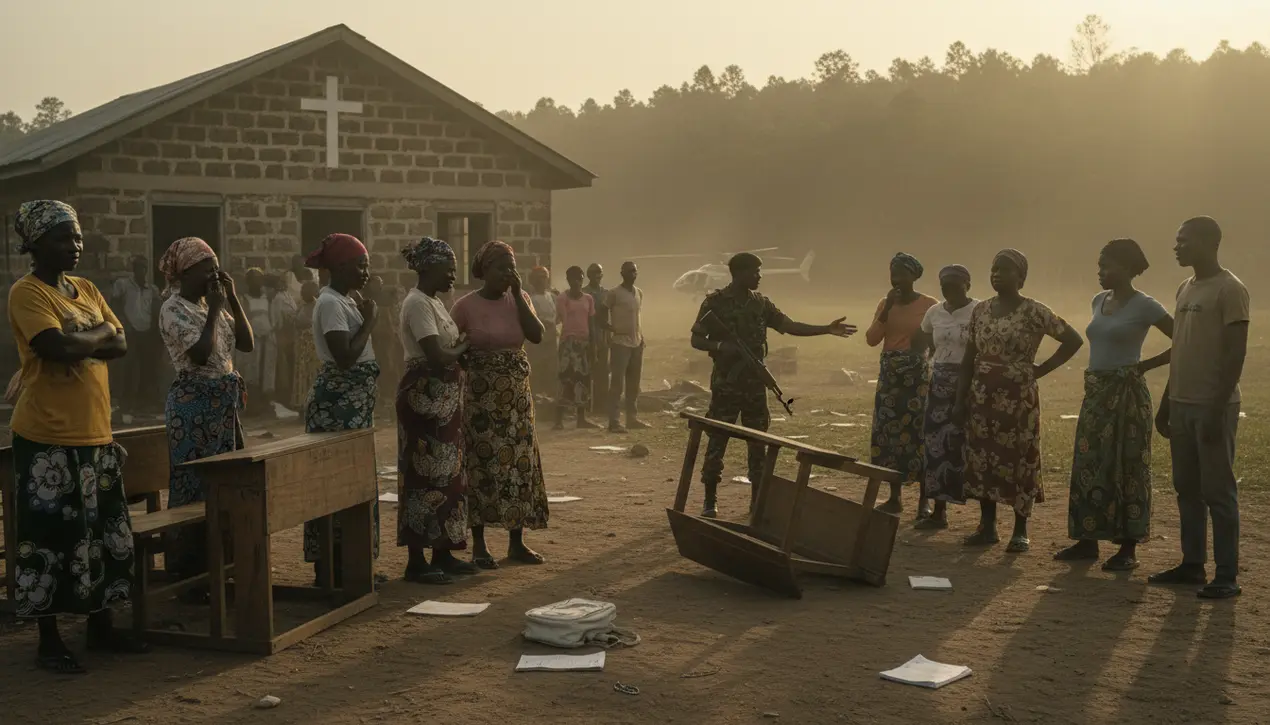
Politicsconflict & defenseTerrorism and Counterterrorism
Nigerian Catholic School Pupils Abducted in Fresh Attack.
EM
Emma Wilson
1 day ago7 min read5 comments
In a grim echo of past tragedies that have scarred the nation, armed assailants stormed a Catholic school in Nigeria, abducting an undisclosed number of pupils in a brazen attack that has once again laid bare the profound security crisis gripping the country's central and northwestern regions. The news, delivered in terse official statements, sends a familiar chill down the spine of a populace weary of such headlines; security forces have, as they always do, launched operations to assess the situation and locate the missing children, but for the families huddled in desperate vigil, these words are a painful refrain from a broken record.This is not an isolated incident but part of a devastatingly profitable industry of kidnapping for ransom that has flourished, targeting the most vulnerable and turning educational institutions from sanctuaries of learning into hunting grounds for criminal gangs, often loosely termed 'bandits'. The context is critical here: since the infamous 2014 Chibok abduction of over 270 schoolgirls by Boko Haram, Nigeria has witnessed a horrifying normalization of mass school kidnappings, with thousands of students taken in recent years, their fates ranging from negotiated releases after months of trauma to, tragically, being forever lost.The immediate aftermath is a chaotic scramble—helicopters may be whirring over the dense forests of Kaduna or Zamfara state, ground troops combing remote areas, and government officials promising swift action, but on the ground, the reality is a toxic mix of fear, anger, and a crumbling social contract. Experts like Dr.Kemi Okenyodo, a security analyst with the CLEEN Foundation, point to a catastrophic failure of governance, where vast ungoverned spaces, endemic poverty, and a rampant proliferation of small arms have created a perfect storm. 'These are not highly ideological militants,' she often explains, 'but entrepreneurial criminals who have identified a low-risk, high-reward enterprise.The state's response is consistently reactive, a firefighting mission after each abduction, rather than a strategic, preventative security architecture that protects its citizens. ' The human cost is immeasurable—beyond the terrifying ordeal for the children, which inflicts deep psychological scars, communities are dismantled, parents are bankrupted by ransoms, and a generation is being deprived of education, fueling a longer-term crisis of illiteracy and disillusionment.The international community watches with growing concern, but interventions are often hamstrung by complexities of sovereignty and the Nigerian government's frequent, though unconvincing, assurances that it has the situation under control. As the sun sets on the first day of this latest crisis, the questions hang heavy in the humid air: How many more classrooms must be emptied? How many more childhoods must be stolen before a decisive, sustained, and intelligent strategy is deployed to end this national shame? The operations to locate these pupils are underway, but for Nigeria, it feels like a race against a ticking clock it has been losing for a decade.
#Nigeria
#kidnapping
#school
#security forces
#Catholic
#pupils
#abduction
#lead focus news
Stay Informed. Act Smarter.
Get weekly highlights, major headlines, and expert insights — then put your knowledge to work in our live prediction markets.
Comments
Loading comments...
© 2025 Outpoll Service LTD. All rights reserved.